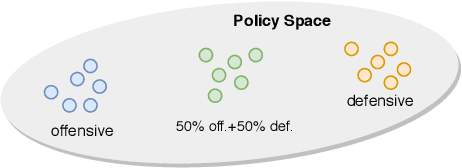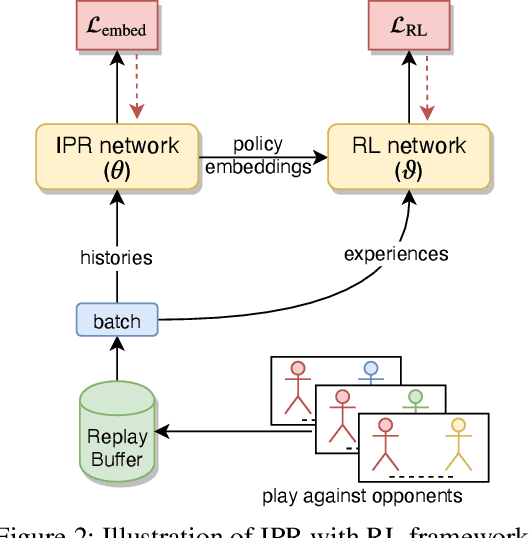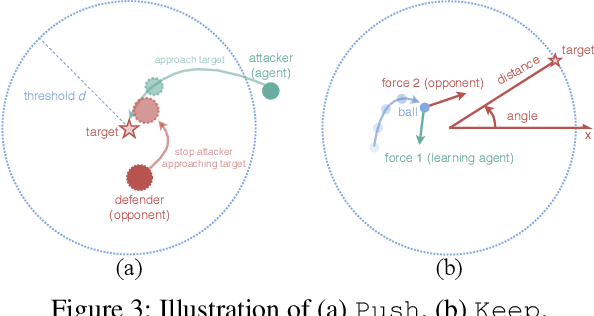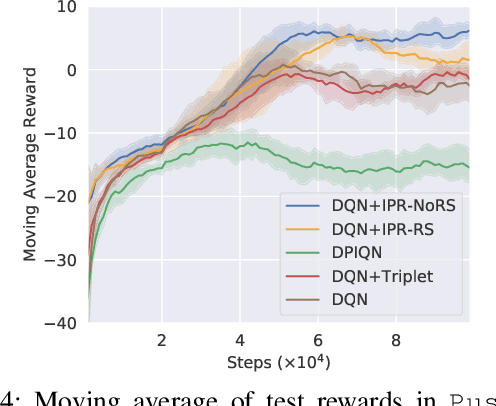Informative Policy Representations in Multi-Agent Reinforcement Learning via Joint-Action Distributions
Paper and Code
Jun 10, 2021



In multi-agent reinforcement learning, the inherent non-stationarity of the environment caused by other agents' actions posed significant difficulties for an agent to learn a good policy independently. One way to deal with non-stationarity is agent modeling, by which the agent takes into consideration the influence of other agents' policies. Most existing work relies on predicting other agents' actions or goals, or discriminating between their policies. However, such modeling fails to capture the similarities and differences between policies simultaneously and thus cannot provide useful information when generalizing to unseen policies. To address this, we propose a general method to learn representations of other agents' policies via the joint-action distributions sampled in interactions. The similarities and differences between policies are naturally captured by the policy distance inferred from the joint-action distributions and deliberately reflected in the learned representations. Agents conditioned on the policy representations can well generalize to unseen agents. We empirically demonstrate that our method outperforms existing work in multi-agent tasks when facing unseen agents.
 Add to Chrome
Add to Chrome Add to Firefox
Add to Firefox Add to Edge
Add to Edge